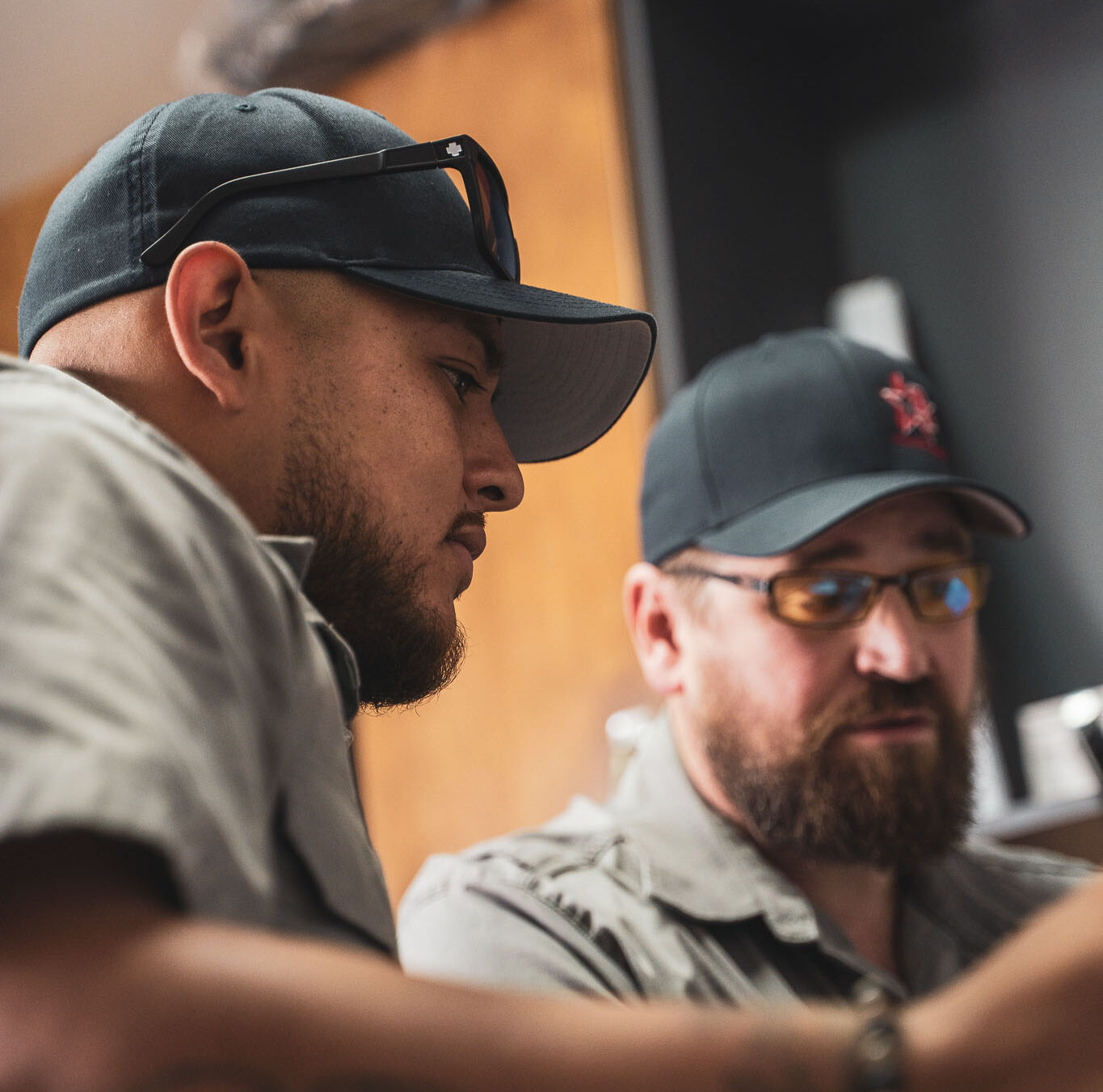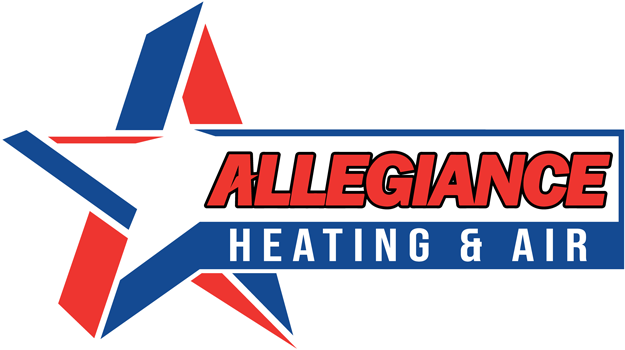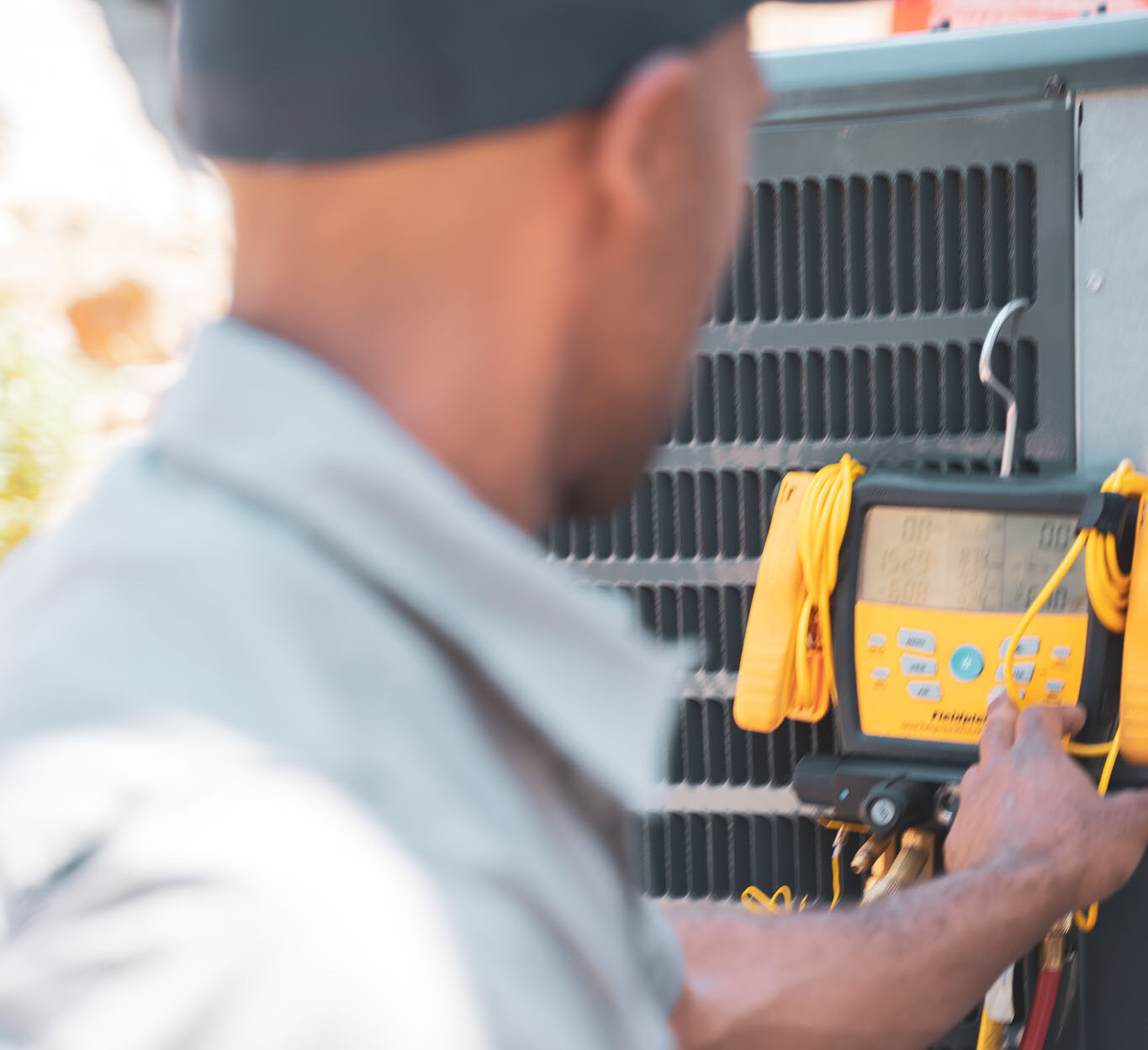
When a $20 Part Can Bring Down Your Entire AC System
Your air conditioner won’t turn on. Or maybe it starts… then shuts off. It could be a blown fuse—or something far simpler: the capacitor.
This small, inexpensive part plays a big role in your system’s performance. But too often, it’s either ignored or misdiagnosed. And when it fails, it can cause more damage than you think.
At Allegiance Heating & Air, we believe in educating our clients. If you’re searching ac maintenance near me or trying to understand what’s really wrong with your system, this post is for you.
Let’s break down how to tell if your capacitor is the problem, what it really costs to replace, and how you can prevent bigger issues down the road.
What an AC Capacitor Actually Does (And Why It’s So Important)
Think of your AC capacitor as a jump-starter for your system.
It stores and releases the electrical energy needed to start motors—like the compressor, blower, and fan. Without it, those parts can’t power on correctly—or at all.
There are two common types:
- Start capacitors: Provide the initial jolt to get motors going
- Run capacitors: Help maintain steady voltage while the system is running
Over time, capacitors wear out. They can swell, leak, or lose their ability to hold a charge—especially in San Diego’s hot and dry climate, where prolonged sun exposure and electrical surges are common.
The scary part? A bad capacitor can mimic other problems, so without proper diagnosis, you could end up replacing the wrong part—or worse, damaging the compressor.
That’s why we always start with thorough testing before recommending ac capacitor replacement or any other repair.
Common Signs Your Capacitor Is Failing
Here are the red flags every homeowner should watch for:
- AC unit won’t turn on
- Humming noise but no fan movement
- The system starts, then shuts off quickly
- Warm air instead of cool
- Tripped circuit breakers
- Burning smell from the unit
One or more of these symptoms can point to capacitor issues—but they can also indicate problems with your compressor, contactor, or electrical panel.
This is why DIY testing often leads to misdiagnosis. Some capacitors still hold a charge even after shutting off power—posing serious shock hazards. Others look fine visually but are failing internally.
If your AC is acting up and you’re searching ac maintenance near me, make sure your technician has the tools and training to properly test your system. Don’t let a $20 part take out a $2,000 component.
What It Really Costs to Replace an AC Capacitor
You’ve probably seen a wide range of prices online—from $15 DIY parts to $300+ technician visits. So, what’s the real cost?
Here’s what to consider:
- Part cost: Capacitors themselves are usually inexpensive ($20–$60)
- Labor: Most service calls include diagnostics and travel fees
- Warranty coverage: If your system is under warranty, parts might be covered—but not labor
- Urgency: Emergency or after-hours service can increase the price
In San Diego, a professional ac capacitor replacement cost typically falls between $150 and $500 depending on your system and whether other parts are involved.
We’ve seen homeowners damage their systems by installing the wrong capacitor (wrong voltage, size, or rating). That “$30 fix” can end up costing $3,000 in compressor repairs.
At Allegiance Heating and Air, we’re honest about costs. We’ll diagnose the issue, explain your options, and only recommend replacement if it’s truly necessary.
Don’t Ignore It—A Bad Capacitor Can Kill Your System
Here’s what most homeowners don’t realize:
Running your AC with a failing capacitor puts stress on the rest of your system—especially the compressor.
This can lead to:
- Overheating
- Locked-up motors
- Electrical arcing
- Shortened system lifespan
- Complete system failure
And if your capacitor fails completely while the unit is running, the compressor may keep trying to start—drawing high amps and overheating until it shuts down for good.
We’ve seen it happen dozens of times.
What started as a couple hundred dollar fix becomes a $2,000 compressor replacement or, worse, a full system upgrade you weren’t planning for.
If your unit is showing any of the signs mentioned above, don’t wait. A fast diagnostic visit can give you peace of mind—and possibly save your system.
How Preventative Maintenance Saves You from Surprise Repairs
Most capacitor failures don’t happen overnight—they happen slowly.
The easiest way to catch them? Routine maintenance.
When you schedule seasonal HVAC tune-ups with Allegiance Heating and Air, we:
- Inspect and test capacitors with proper tools
- Check voltage and amperage draw
- Identify early signs of failure (bulging, discoloration, overheating)
- Replace parts before they become emergencies
Preventative care isn’t just about your capacitor—it’s about protecting your entire HVAC system and property. Just like oil changes for your car, it keeps things running efficiently and helps avoid surprise breakdowns when you need your AC the most.
If you’re searching ac maintenance near me—look for a company that checks the small stuff. Because in HVAC, the small stuff makes all the difference.
Don’t Let a Small Part Cause Big Problems
Capacitor issues are one of the most common—and most misdiagnosed—AC problems we see. But when caught early, they’re also one of the easiest and most affordable to fix.
At Allegiance Heating & Air, we treat every repair with care and transparency. Whether it’s a quick part replacement or a deeper issue, you’ll know exactly what’s going on and what it means for your system.
Suspect a failing capacitor? Let us take a look before it becomes a bigger problem.
We’re here to protect your comfort—and your HVAC investment.

8733 N Magnolia Ave #204
Santee, CA 92071
619-449-2469
marketing@allegiancehvacsd.com
Monday – Friday: 8:00 AM – 5:00 PM

